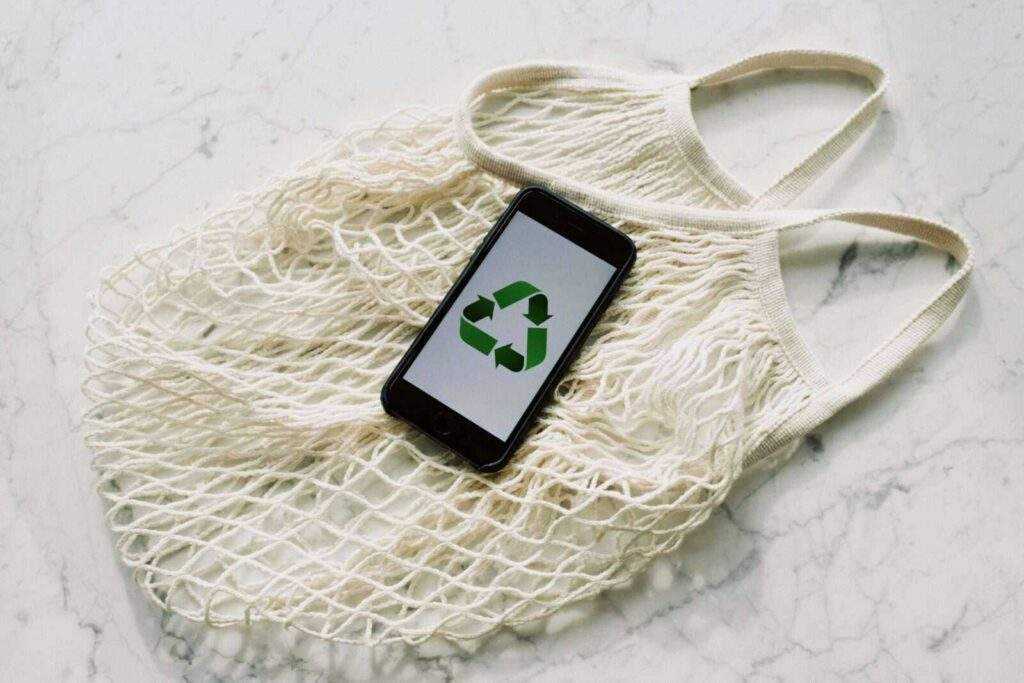The Power of Reusable Bags: Ditch the Plastic and Embrace Sustainable Shopping

Table of Contents
Plastic Pollution: A Growing Crisis
Plastic pollution has escalated into a global environmental crisis, profoundly impacting ecosystems, wildlife, and human health. Each year, millions of metric tons of plastic waste inundate our oceans, harming marine life through ingestion and entanglement. On land, plastic waste clogs landfills, leaches harmful chemicals into soil and water, and persists for centuries without degrading fully. The production of plastic bags exacerbates these issues, consuming vast amounts of fossil fuels and emitting greenhouse gases during manufacturing and disposal processes. As consumers, our reliance on single-use plastic bags perpetuates this cycle of environmental degradation.
The Path to Sustainable Shopping
Amidst escalating environmental concerns, sustainable shopping practices have emerged as a crucial avenue for reducing our ecological footprint. Sustainable shopping entails making thoughtful choices that prioritize environmental stewardship and promote the longevity of natural resources. At its core, it encourages individuals to reconsider their consumption habits, opting for products and practices that minimize waste and conserve resources. Reusable bags stand out as a pivotal example of sustainable shopping in action, offering a tangible way to reduce plastic waste and support sustainable living.
Unveiling the Benefits of Reusable Bags
Making the switch from disposable plastic bags to reusable alternatives yields a host of benefits that extend beyond personal convenience:
- Reduce Plastic Waste: Reusable bags significantly diminish the volume of plastic waste entering landfills and oceans. Unlike their single-use counterparts, which often end up as litter, reusable bags can be used repeatedly, reducing the overall demand for plastic production and disposal.
- Conservation of Resources: The production of plastic bags consumes finite natural resources, including petroleum and natural gas. By opting for reusable bags made from sustainable materials such as cotton, jute, or recycled fabrics, individuals help conserve these resources and minimize the environmental impact associated with their extraction and processing.
- Long-Term Cost Savings: While reusable bags may require an initial investment, they offer substantial long-term savings compared to single-use plastic bags. Reusable bags are durable and designed for multiple uses, reducing the need for frequent replacements. Over time, this translates into financial savings and a reduced environmental footprint.
- Convenience and Durability: Reusable bags are engineered to withstand heavy loads and frequent use. They come in various sizes, designs, and materials, catering to diverse shopping needs from groceries to daily essentials. Many reusable bags feature reinforced handles, sturdy stitching, and foldable designs for easy storage, combining functionality with durability.
- Community and Environmental Impact: Choosing reusable bags fosters a sense of environmental responsibility within communities. By advocating for sustainable shopping practices, individuals contribute to a broader movement aimed at reducing plastic waste and promoting eco-friendly alternatives. This collective effort not only reduces local environmental impact but also inspires others to adopt similar practices, creating a positive ripple effect for sustainable living.
The Shocking Truth About Plastic Bags
A. Delving Deeper into the Environmental Impact
Plastic bags have become emblematic of convenience in modern society, yet their environmental repercussions are profound and far-reaching:
Massive Waste Generation: Globally, billions of plastic bags are used each year, contributing significantly to the mounting crisis of plastic waste. These bags are often used for mere minutes but persist in the environment for centuries due to their resistance to degradation.
Resources:
- World Wildlife Fund on Plastic Pollution
- National Geographic on Plastic Waste
Challenges of Recycling: Despite efforts to promote recycling, plastic bags pose unique challenges. Their thin and flexible nature makes them unsuitable for conventional recycling processes, often clogging machinery and contaminating recyclable streams.
Resources:
- Environmental Protection Agency (EPA) on Plastic Bag Recycling
- Plastic Pollution Coalition on Recycling Challenges
Impact on Marine and Wildlife: Discarded plastic bags pose a severe threat to marine ecosystems. Marine animals often mistake them for food, leading to ingestion and entanglement. This ingestion can cause suffocation, starvation, and internal injuries, devastating populations of marine mammals, seabirds, and fish.
Resources:
- Ocean Conservancy on Marine Debris
- National Oceanic and Atmospheric Administration (NOAA) on Marine Debris Impacts
Microplastic Contamination: Over time, plastic bags break down into smaller fragments known as microplastics. These microplastics permeate aquatic environments, posing significant threats to marine life and potentially entering the human food chain.
Resources:
- UN Environment Programme on Microplastics
Environmental Justice Issues: Plastic bag pollution disproportionately impacts low-income communities and communities of color, where waste facilities and recycling programs may be inadequate. These communities often bear the brunt of environmental and health hazards associated with plastic pollution.
Resources:
- NRDC on Environmental Justice and Plastic Pollution

B. Hidden Costs of Plastic Bags
Beyond their apparent utility, plastic bags carry hidden costs that exacerbate environmental and economic burdens:
Burden on Waste Management: Plastic bags complicate waste management systems by increasing sorting and disposal costs. Their lightweight design allows them to be easily carried by wind, contributing to urban litter and necessitating frequent clean-up efforts.
Resources:
- Earth911 on Plastic Bag Recycling Challenges
Environmental Cleanup Expenses: Governments and communities incur substantial expenses in cleaning up plastic bag litter from streets, parks, and water bodies. These clean-up efforts strain municipal budgets and divert resources from other essential environmental initiatives.
Resources:
- Environmental Defense Fund on Plastic Bag Pollution
Economic Inefficiencies: The economic costs of plastic bag pollution extend beyond clean-up efforts. Businesses and municipalities face financial burdens associated with environmental damage, litigation, and public health concerns.
Resources:
Health Impacts: Plastic bags contribute to air and water pollution through their production processes and disposal. The chemicals used in their manufacturing, such as BPA and phthalates, can leach into the environment and pose risks to human health.
Resources:
- Harvard T.H. Chan School of Public Health on Plastics and Health
Embrace Reusable Bags: A Sustainable Shopping Solution
A. Unveiling the World of Reusable Bags
In today’s environmentally conscious world, reusable bags have become essential tools in reducing plastic waste and promoting sustainable shopping practices. Here’s a detailed exploration of the diverse range of reusable bags available:
- Classic Tote Bags: These timeless favorites are versatile and durable, making them ideal for everyday use. Made from materials like cotton, canvas, or recycled fabrics, classic tote bags offer ample space and sturdy handles for carrying groceries, books, or personal items with ease. Resources:
- Baggu – Offers a wide range of reusable bags including classic totes made from sustainable materials.
- Eco-Bags Products – Specializes in eco-friendly tote bags crafted from organic cotton and recycled materials.
- Foldable Reusable Bags: Designed for convenience, foldable reusable bags are compact and lightweight, folding into a small pouch for easy storage in a purse or pocket. They unfold into spacious bags suitable for shopping or carrying essentials on-the-go, offering an eco-friendly alternative to single-use plastic bags. Resources:
- ChicoBag – Known for their packable reusable bags that fold into a small pouch for portability.
- Envirosax – Offers stylish and eco-friendly foldable bags in various patterns and sizes.
- Insulated Reusable Bags: Perfect for grocery shopping, insulated reusable bags help maintain the temperature of perishable items such as frozen foods or chilled beverages. They typically feature insulation materials like foam or aluminum lining to keep contents cool during transport. Resources:
- Earthwise Bags – Provides insulated reusable grocery bags designed to keep food fresh while reducing plastic waste.
- Thermos – Offers insulated totes and cooler bags for both food and beverage storage during travel.
- Mesh Produce Bags: These lightweight and breathable bags are designed specifically for carrying fruits and vegetables. Mesh produce bags eliminate the need for plastic produce bags at supermarkets and farmers’ markets, allowing for easy identification and washing of produce. Resources:
- Simple Ecology – Specializes in organic cotton mesh produce bags in various sizes to accommodate different shopping needs.
- Pura Vida Bracelets – Offers reusable mesh produce bags made from recycled materials.
- Durable Shopping Bags: For heavier items or bulk shopping, durable reusable bags with reinforced handles and strong materials are essential. These bags are built to withstand frequent use and can carry larger loads without compromising on sustainability. Resources:
- Bagito – Provides heavy-duty reusable shopping bags made from recycled materials, designed for durability and sustainability.
- BAGGU – Known for their durable and stylish reusable bags that are perfect for various shopping needs.
B. Finding the Perfect Reusable Bag for You
Selecting the right reusable bag involves considering several key factors to ensure it meets your specific needs and aligns with sustainable practices:
- Material: Choose bags made from eco-friendly materials such as organic cotton, recycled PET (polyethylene terephthalate), or natural fibers like jute. These materials reduce environmental impact and support sustainable production practices.
- Size: Consider the size of the bag based on your typical shopping habits. Larger bags are ideal for groceries or bulk purchases, while smaller ones are convenient for quick errands or carrying personal items.
- Durability: Look for bags with strong stitching, reinforced seams, and durable materials that can withstand heavy loads and frequent use without tearing or breaking.
- Carrying Capacity: Evaluate the bag’s capacity to ensure it can comfortably carry the items you typically purchase. Choose bags with ample space and weight-bearing capacity for groceries or other goods.
- Style: Opt for a design or pattern that reflects your personal style preferences. Many reusable bags come in a variety of colors, prints, and styles, offering both functionality and aesthetic appeal.

Beyond the Grocery Store: Versatile Uses of Reusable Bags
A. Reusable Bags on the Go
Reusable bags offer an array of practical applications beyond just grocery shopping, proving their versatility and value in everyday life. Here are some creative ways to incorporate reusable bags into various aspects of your daily routine:
- Carrying Library Books: Reusable bags are perfect for carrying books and other materials from the library. Their sturdy design ensures your books are protected and easy to transport.
- Beach Essentials: Pack your sunscreen, towels, snacks, and other beach essentials into a spacious reusable bag. Opt for a waterproof or easily washable bag to handle sand and saltwater.
- Picnic Supplies: Use a reusable bag to gather and carry your picnic supplies, including food, utensils, and a blanket. Insulated bags are particularly useful for keeping perishables fresh.
- Gym Clothes: Reusable bags make excellent gym bags for carrying your workout clothes, shoes, and a water bottle. Choose a bag with compartments or pockets to keep your items organized.
- Gift Bags: Replace disposable gift bags with reusable ones to make your presents even more special. A reusable bag can be part of the gift itself, promoting sustainability and reducing waste.
- Takeout Food: Bring your own reusable bag when picking up takeout food to avoid the use of plastic or paper bags. Some restaurants even offer discounts for customers who bring their own bags.
- Everyday Errands: Whether you’re running to the pharmacy, the post office, or the farmer’s market, a reusable bag can help you carry your purchases with ease. Keep a foldable reusable bag in your purse or car for spontaneous errands.
Resources:
- Etsy – Find a variety of handmade and unique reusable bags for different uses.
- Amazon – A wide selection of reusable bags with different features and designs.
- The Tote Project – Offers ethical and sustainable tote bags for various uses.
B. A Lifestyle Change for a Sustainable Future
Adopting reusable bags is more than a practical choice—it’s a step toward a more conscious and sustainable lifestyle. Here’s how making this simple change can have a broader impact:
- Symbol of Conscious Consumption: Using reusable bags signifies a commitment to reducing single-use plastics and embracing sustainable practices. It’s a small yet powerful way to signal your environmental values.
- Mindful Consumption: By carrying reusable bags, you become more aware of your consumption habits. This mindfulness can extend to other areas of your life, encouraging you to make more sustainable choices overall.
- Waste Reduction: Reusable bags significantly reduce the amount of plastic waste that ends up in landfills and oceans. This reduction helps to protect wildlife, conserve resources, and mitigate pollution.
- Community Influence: Your use of reusable bags can inspire others to adopt similar practices. Whether through conversation or observation, your actions can encourage friends, family, and even strangers to think more sustainably.
- Long-Term Savings: Investing in reusable bags can save you money in the long run. Many stores charge for plastic bags, and constantly buying disposable bags adds up over time. Reusable bags, on the other hand, offer durability and longevity.
- Support for Sustainable Brands: Purchasing reusable bags from companies that prioritize sustainability helps to support eco-friendly businesses. This consumer demand can drive broader industry changes towards more sustainable practices.
Resources:
- EarthHero – A marketplace for sustainable products, including a variety of reusable bags.
- Green America – Offers resources and tips for living a more sustainable lifestyle.
- Treehugger – Provides information on reducing waste and embracing eco-friendly habits.

Making the Switch: Tips for Transitioning to Reusable Bags
A. Building Your Reusable Bag Collection
Switching to reusable bags starts with building a collection that suits your needs. Here are some practical tips to help you get started:
- Start Small and Expand: Begin with a few basic reusable bags that you can use regularly. As you get accustomed to them, gradually expand your collection to include different sizes and types.
- Buy in Bulk: Purchasing reusable bags in bulk can be cost-effective. Look for deals or multipack options, which often provide a variety of bag sizes and types.
- Machine Washable Bags: Opt for machine washable reusable bags for easy cleaning and maintenance. This ensures that your bags stay hygienic and ready for repeated use.
- Variety of Materials: Consider bags made from various materials such as organic cotton, recycled plastics, or sturdy canvas. Each material offers different benefits in terms of durability, eco-friendliness, and ease of cleaning.
- Specialized Bags: Add specialized bags to your collection, like insulated bags for perishable groceries or mesh bags for produce. These types of bags can enhance your shopping experience and further reduce plastic use.
Resources:
- Baggu – Offers a wide range of stylish, durable, and machine washable reusable bags.
- EcoBags – Specializes in eco-friendly and sustainable reusable bags.
- Reusable Bags – A comprehensive site for all types of reusable bags and related accessories.
B. Remembering Your Reusable Bags
Ensuring you always have reusable bags on hand can be challenging but manageable with these strategies:
- Keep Bags Accessible: Store reusable bags in places where you are likely to remember them. Keep a few in your car, purse, or backpack so they’re always within reach when you need them.
- Set Reminders: Use phone reminders or sticky notes to prompt you to take reusable bags when heading out. Setting a recurring reminder can help make this a habit.
- Designated Storage Spot: Have a designated spot by your door or in a high-traffic area of your home for storing reusable bags. This visual cue can remind you to grab them on your way out.
- Family Involvement: Encourage all family members to carry reusable bags. This shared responsibility ensures someone always has a bag when shopping together.
Resources:
- Evergreen Goods – Offers tips and products to help remember your reusable bags.
- EcoRight – Provides a variety of reusable bags designed for easy storage and accessibility.
- Chicobag – Known for compact, portable, and easily storable reusable bags.
C. Encouraging Change: Spreading the Message of Sustainability
Promoting the use of reusable bags can extend their positive impact. Here’s how you can encourage others to make the switch:
- Lead by Example: Show others how easy and beneficial it is to use reusable bags by incorporating them into your daily routine. Sharing your experiences can inspire others to follow suit.
- Gifting Reusable Bags: Offer reusable bags as thoughtful gifts. They make excellent stocking stuffers or housewarming presents, encouraging friends and family to start using them.
- Advocate for Policies: Support local initiatives and policies that discourage the use of single-use plastic bags. Participate in community efforts to raise awareness about the environmental impact of plastic pollution.
- Social Media Advocacy: Use social media to share tips, benefits, and personal stories about using reusable bags. This can reach a broader audience and inspire collective action.
- Community Involvement: Join or start community programs that promote sustainable shopping habits. Organize events or workshops to educate others about the importance and benefits of reusable bags.
Resources:
- Plastic Pollution Coalition – Provides resources and advocacy tips for reducing plastic pollution.
- Friends of the Earth – Offers information on environmental advocacy and community action.
- Surfrider Foundation – Focuses on protecting oceans and beaches from plastic pollution, offering programs to get involved.

Sustainable Shopping Beyond Reusable Bags
A. Planning Your Shopping Trips
Planning your shopping trips can significantly minimize waste and promote more sustainable consumption habits. Here are some strategies to help you get started:
- Create Grocery Lists: Preparing a detailed grocery list before heading to the store helps you stay focused on what you need, reducing the chances of impulse purchases that often lead to food waste. There are apps like AnyList or Out of Milk that can help you organize your lists efficiently.
- Buy in Bulk: Purchasing items in bulk can reduce packaging waste and often proves to be more economical. However, ensure you have the proper storage to keep bulk items fresh and usable. Many stores like Whole Foods Market and Bulk Barn offer bulk sections where you can use your own containers.
- Opt for Minimal Packaging: When possible, choose products with minimal or recyclable packaging. Support stores that offer package-free options, like Zero Waste Home or Package Free Shop, which specialize in reducing packaging waste.
- Seasonal and Local Produce: Buy seasonal and local produce to reduce the environmental impact associated with transportation and storage. Visit local farmers’ markets or join a community-supported agriculture (CSA) program to get fresh, local produce directly from farmers.
Resources:
- Environmental Working Group – Provides guides on how to choose sustainable and healthy food options.
- Local Harvest – A directory to find local farmers’ markets and CSAs.
B. Supporting Sustainable Brands
Supporting brands that prioritize sustainability can drive significant change in consumer markets. Here’s how you can identify and support such brands:
- Recycled or Compostable Packaging: Look for brands that use recycled materials or compostable packaging for their products. Brands like Seventh Generation and Ecover are known for their eco-friendly packaging solutions.
- Minimal Processing: Choose products that have undergone minimal processing and contain fewer, more natural ingredients. This not only benefits your health but also reduces the environmental impact of production. For example, Thrive Market offers a range of minimally processed, sustainable products.
- Ethical Sourcing: Research companies that emphasize ethical sourcing practices and environmental responsibility. Brands like Patagonia and Fair Trade Certified provide transparency about their sourcing practices and commitment to sustainability.
- Certifications and Labels: Familiarize yourself with certifications that indicate sustainable practices, such as USDA Organic, Fair Trade Certified, or the Rainforest Alliance. These labels help you make informed choices about the products you buy.
- Support Local and Small Businesses: Smaller, local businesses often have more sustainable practices and a smaller carbon footprint compared to large corporations. Websites like Etsy allow you to support small artisans and businesses that prioritize sustainability.
Resources:
- B Lab – Certifies B Corporations that meet rigorous standards of social and environmental performance.
- Ethical Consumer – Provides ratings and reports on the ethical and environmental records of various companies.
Switching to reusable bags is a simple yet impactful step towards a more sustainable lifestyle. By making this change, you can:
- Reduce Plastic Waste: Reusable bags help cut down on the millions of plastic bags that end up in landfills and oceans annually, significantly reducing pollution and protecting wildlife.
- Conserve Resources: Using reusable bags conserves the natural resources and energy required to produce single-use plastic bags, which are often made from non-renewable petroleum.
- Save Money: Many stores now charge for plastic bags, so switching to reusable bags can save you money in the long run. Additionally, reusable bags are more durable and can be used for years, providing excellent value for their cost.
Making the switch to reusable bags is easy and rewarding. Here’s how you can start today:
- Integrate Reusable Bags into Your Routine: Keep a few reusable bags in convenient places, such as your car, purse, or backpack, so you always have one on hand. Consider using hooks by your door or reminders on your phone to ensure you don’t forget them when you go shopping.
- Feel Empowered: Each time you use a reusable bag, you’re making a positive impact on the environment. This small act of sustainability can inspire others to follow suit, creating a ripple effect of positive change.
- Find the Right Bags for You: There are many options available to suit your needs, from classic tote bags to insulated grocery bags. Websites like Reusable Bag Store and EcoBags offer a wide range of stylish and functional reusable bags.
B. The Future of Sustainable Shopping
The future of sustainable shopping practices looks promising as more people become aware of the environmental impact of their choices. Here’s what to look forward to:
- Reduced Reliance on Single-Use Plastics: With growing awareness and changing regulations, the reliance on single-use plastics is expected to decrease significantly. Many countries and cities are already implementing bans and restrictions on plastic bags, pushing consumers towards more sustainable options.
- Consumer Demand for Eco-Friendly Products: The demand for eco-friendly products and packaging is on the rise. Consumers are increasingly seeking out brands that prioritize sustainability, and businesses are responding by offering more green alternatives. This shift is fostering innovation in sustainable materials and packaging solutions.
- Greater Awareness and Education: As education on the environmental impacts of plastic pollution spreads, more people are adopting sustainable shopping habits. Organizations and initiatives are working tirelessly to raise awareness and provide resources for consumers to make informed choices.
Resources for Further Exploration:
- Websites and Blogs:
- Plastic Pollution Coalition
- Sustainable Jungle
- Earth911
- Directories of Sustainable Products:
- Eco-Directory
- Sustainable Brands
- Organizations and Initiatives:
- Greenpeace
- The Ocean Cleanup
By embracing reusable bags and other sustainable shopping practices, you contribute to a healthier planet and set a positive example for others. Let’s work together to reduce plastic waste, conserve resources, and promote a sustainable future. Every small step counts, and your choice to switch to reusable bags is a significant one. Join the movement today and make a lasting impact on the environment.

Reusable Bags FAQ: Ditch Plastic and Embrace Sustainable Shopping!
Making the switch to reusable bags is a fantastic step towards a more sustainable lifestyle. This FAQ section tackles common questions you might have:
1. What are the benefits of using reusable bags?
Reusable bags offer numerous advantages: reducing plastic waste, conserving resources, saving money in the long run, and promoting convenience with stylish and durable options. Plus, you’ll be making a positive impact on the environment!
2. What are some different types of reusable bags?
There’s a perfect reusable bag for everyone! Options include classic tote bags, foldable bags for easy storage, insulated bags for temperature control, mesh produce bags for breathability, and heavy-duty bags for bulk purchases.
3. How do I choose the right reusable bag for me?
Consider factors like material, size, durability, and carrying capacity. Opt for sustainable materials like organic cotton or recycled plastic. Stylish options can seamlessly integrate into your routine!
4. Can I use reusable bags beyond grocery shopping?
Absolutely! They’re perfect for carrying library books, beach essentials, picnic supplies, gym clothes, or even as reusable gift bags.
5. How can I remember to bring my reusable bags?
Keep a few in your car, purse, or by the door with a reminder. Encourage family members to carry them too!
6. What if I forget my bags at the store?
Don’t fret! Use it as a learning experience. Consider keeping a spare bag in your car or asking the store if they offer reusable bags for purchase.
7. How can I wash my reusable bags?
Most reusable bags are machine washable for easy cleaning. Check the care label for specific instructions.
8. How can I encourage others to use reusable bags?
Lead by example and share your positive experience. Offer reusable bags as gifts or advocate for local policies discouraging single-use plastic bags.
9. What are some additional sustainable shopping practices?
Planning your shopping trips with a list minimizes impulse purchases and food waste. Look for products with minimal packaging, choose package-free options at local stores, and support brands committed to sustainability.
10. Where can I find more information on reusable bags and sustainable shopping?
We’ve got you covered! Check out the blog’s resources section for websites, organizations, and articles promoting reusable bags and sustainable shopping practices. Together, let’s make a difference!








